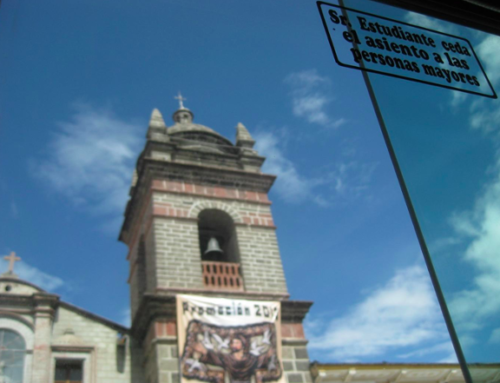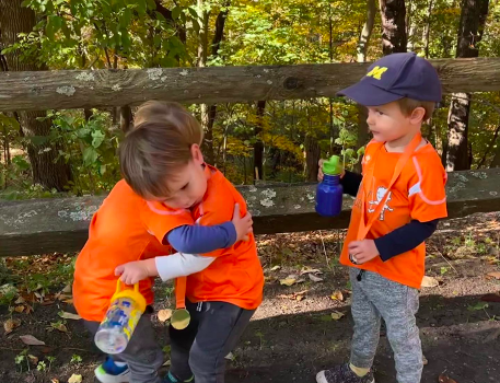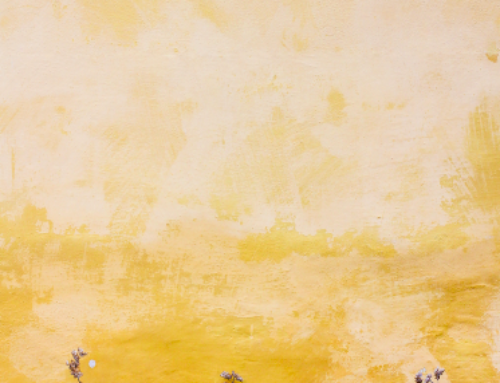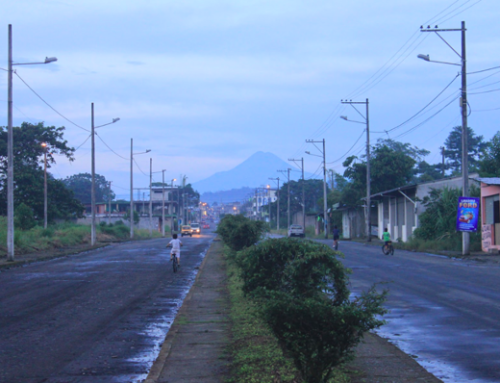My love for Amazonian languages was born out of my love for the Amazon rainforest and its peoples. I could have dedicated myself to anything as long as my profession allowed me to navigate the Amazonian rivers and share my life with the friends I have made over more than 25 years. I have always questioned whether my career choice was the right one. Are linguists really useful? Does it make sense to be a linguist in a context of political unrest, environmental destruction, climate crisis, social abandonment, and economic precarity? Are the questions and insights posed by the discipline of linguistics relevant to the social life of the Indigenous peoples with whom I collaborate?
Linguistics, as one pillar of contemporary language sciences, deals with complex issues focused on the multiple cognitive processes that allow humans to learn and use language. Some of the formalisms and generalizations used by linguists are significantly far away from the concerns and needs of real speakers. This disconnect becomes a major moral challenge when these speakers are Indigenous peoples, whose human rights, including the right to freely use and transmit their ancestral languages, are systematically ignored and historically excluded.
Since Krauss’s (1992) seminal paper, “The World’s Languages in Crisis,” linguists have become more aware of the risks facing the world’s linguistic diversity. Despite the inaccuracy of some of his estimates (Simons and Lewis 2013), Krauss’s argument redefined various aspects and practices in contemporary linguistics and strengthened the position of documentary linguistics, which aims to produce permanent records of the linguistic and cultural practices of the most threatened speech communities (Himmelmann 1998; Austin 2016; Woodbury 2011). In the last few decades, documentary linguistics has become an energizing response to the existential questions facing the discipline. Doing documentary linguistics in collaboration with Indigenous peoples, however, invites fundamental questions about caring and responsibility. I explore some of these questions in this essay.
Caring from the Perspective of Documentary Linguistics: Achievements
Doing documentary linguistics often involves collecting large amounts of audio and video recordings, texts (often transcribed, translated, and grammatically glossed), and lexical repertoires, which include vocabularies or dictionaries, with different degrees of detail. These data are often deposited in international language archives, from which they can, in principle, be accessed by scholars and members of speech communities.
These language databases, however, are often underexploited. Few are developed further into long-lasting language revitalization projects. Although documentary linguists very often incorporate revitalization components in their language documentation projects, language documentation and language revitalization are not equivalent in terms of their frames, methods, and outcomes (Zariquiey, Oncevay, and Vera 2022). Creating a language database alone cannot revert language decay or dormancy. Language revitalization surely builds on the data produced in language documentation projects, since revitalization uses documentation outcomes in community-based, long-lasting education programs. Unfortunately, this is not very often the case.
Documentary linguistics has built a powerful discourse and shows undeniable achievements. This field has undergone a paradigm shift in methodology from more experimental models where speakers were treated as objects of study or “informants,” to more collaborative models, where community members participate in decision-making, are integrated into research teams, and actively define research questions and outcomes (Bowern 2008). The role of communities has widely been discussed in the language documentary literature, and this discussion has significantly enriched the field (Dobrin and Berson 2011; Rice 2011; Stenzel 2014; Valenzuela and Zariquiey, in preparation.) The aspiration of a truly participatory paradigm for language documentation is a fundamental aspect in how papers and applications are evaluated in journal and grant rounds.
With this new scenario, we can now return to our initial questions. What is the role of a linguist (Gerdts 2010)? Should linguists assume any type of responsibility in this context of threat to global linguistic diversity (Dorian 2010)? Our discipline has opened interesting spaces for reflection and critique on these and other crucial ethical aspects (Czaykowska-Higgins 2018). From these reflections, documentary linguists have built a perspective in which commitment, solidarity, and caring are central. Most contemporary documentary linguists will take a critical perspective on their own discipline, seeking to incorporate the voice, practices, and demands of communities into their work as much as possible and in innovative ways. Documentary linguistics, however, still exhibit internal contradictions (Hill 2002; Diaz Montenegro 2021; Stenzel 2014; Land 2015) and may, ultimately, maintain and replicate some colonial (Leonard 2018) and extractive practices (Valenzuela and Zariquiey, in preparation).
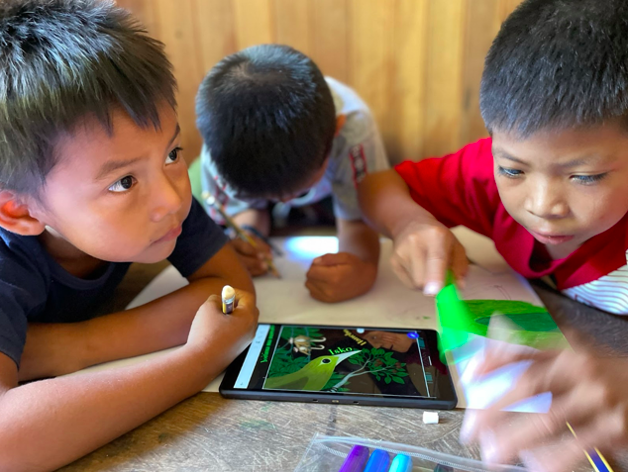
Three Iskonawa children learn the language of their grandparents using technological tools. Photo credit: Colectivo Despertemos Nuestras Lenguas.
Why is it So Difficult to Care? Pitfalls and Challenges
Let us start with one important point: The linguist’s responsibility is multidimensional. Alongside the question of what Indigenous communities expect from a linguist interested in studying their language, one must also consider the expectations of other linguists and scientific institutions (Dorian 2010). Unfortunately, these two perspectives often conflict with each other (Benedicto 2018). A linguist like me, working with Indigenous communities in the Peruvian Amazon and affiliated at a university located in Lima, may experience this tension on a regular basis. Universities expect that the results of documentation projects be disseminated through scientific articles in journals and through presentations at international conferences. Universities often exhibit prejudices regarding what constitutes the appropriate scope of an academic study. While a descriptive study of a language may be sufficient in terms of its merits, this recognition does not extend to the production of quality educational materials or to the undertaking of a successful revitalization process.
Funding agencies in the field of language documentation also expect linguists to produce databases that can be stored in linguistic archives and preserved for posterity. And because research funds often determine what type of work can be accomplished, language documentation and description are prioritized over social programs aimed at revitalization and activism. While it is possible to include some revitalization components in the framework of a documentation project, it is not possible for revitalization to be the center of a funded project. Academic institutions define their priorities according to their own logics, but it is also clear that these are not those of the Indigenous peoples, and this limits the possibility that linguists and communities engage full time in revitalization projects.
Further, most funding agencies operate in English and are linked to the university degree systems. This makes them elusive for members of Indigenous communities or non-Indigenous linguists in non-English speaking countries. Regardless of how committed linguists may be to community participation, the rules are ultimately beyond their control. Often funding application processes operate under cultural, administrative, and linguistic patterns that favor non-Indigenous applications. If these patterns were challenged and applications were enthusiastically received in Spanish and other languages different from English, the gap could begin to close. There are some funding agencies that support revitalization processes conducted by Indigenous communities, but the funding amounts they offer are notably more modest than those offered in the language documentation paradigm.
It is always the linguist who applies for, obtains, and administers the funds, regardless of whether it is a documentation project with an important collaborative component. This is why, for Dobrin and Berson (2011), the documentation of Indigenous languages continues to be a colonial practice that operates within the logic of domination of Indigenous societies. In this context, documentary linguists have a moral obligation to break with the colonial academic tradition and to establish a more equitable division of power that takes into account not only the needs and interests of their own discipline, but also those of the speech communities (Valenzuela and Zariquiey, in preparation).
This is a lengthy process in which linguists typically must invest their own resources and sacrifice their leisure time. This was my case when we started a revitalization project on the Iskonawa language, an Amazonian language from Peru with only four native speakers left. This project is one of the most significant experiences in my professional life, and we have already achieved some significant milestones. Nowadays, there is a large group of young people and children who are slowly learning the language. Unfortunately, without a sustainable funding source, this project will not continue for much longer. This is something that deeply concerns me and the other team members, most of whom are Iskonawa people. This is the fate of various revitalization projects around the world and we have the expectation that this may change during the International Decade of Indigenous languages, declared by UNESCO.
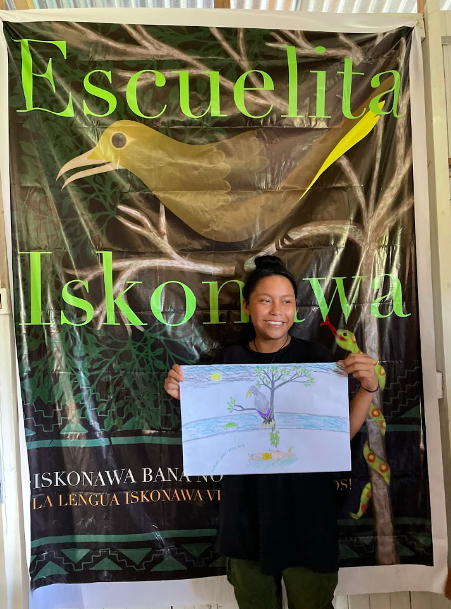
Young woman shows her enthusiasm with the linguistic revitalization activities. Photo credit: Colectivo Despertemos Nuestras Lenguas.
Why Care After All?
Studying the world’s languages provides a unique resource for untangling human history and evolution. This alone can justify the importance of caring about the world’s linguistic diversity. But there are other ways to look at it. Indigenous languages in Amazonia continue to be the natural means of transmitting socio-cultural practices, shared history and knowledge, and a unique vision of the universe. Indigenous languages are the languages of icaros and communication with spirits, for they convey a mythical time “when animals were people and could speak,” as Emilio Estrella, a wise Kakataibo man who passed away during the COVID-19 crisis, used to say. They are a system of symbols that gives meaning to the true names of human and non-human beings, places, and everything that exists in the forest and the river (Valenzuela and Zariquiey, in preparation). From an Amazonian perspective, then, discriminating against Indigenous languages is tantamount to denying their speakers, as well as the cultures and knowledge that they possess. Tearing apart language from all these fundamental components of life and identity is not only theoretically problematic, but is negligent and racist. After all, language is everywhere and in everything. Language creates different landscapes of what it means to be human, and this is why we should care about its future.
References
Austin, Peter K. 2016. “Language documentation twenty years on.” In Endangerment of Languages Across the Planet, edited by Martin Pütz & Luna Filipovic, 147–170. Amsterdam: John Benjamins.
Benedicto, Elena. 2018. “When Participatory Action Research (PAR) and (Western) academic institutional policies do not align.” In Insights from Practices in Community-based Research: From Theory to Practice around the Globe, edited by Shannon Bischoff & Carmen Jany, 38-65. Berlin/Boston: De Gruyter Mouton.
Bowern, Claire. 2008. Linguistic Fieldwork: A Practical Guide. Houndmills, England: Palgrave Macmillan.
Czaykowska-Higgins, Ewa. 2018.“Reflections on Ethics: Re-humanizing Linguistics, Building Relationships across Difference.” In Reflections on Language Documentation Twenty Years after Himmelmann, edited by Bradley McDonnell, Andrea L. Berez-Kroeker and Gary Holton, 110-121. Honolulu: University of Hawai‘i Press.
Díaz Montenegro, Esteban. 2021. “Fundamentos ideológicos de la documentación lingüística: un análisis crítico desde el suroccidente colombiano.” In Ideological Foundations of Linguistic Documentation: A Critical Analysis from the Colombian Southwest. Visitas al Patio: 15, 192-211.
Dobrin, Lise M. and Josh Berson. 2011.“Speakers and Language Documentation.” In The Cambridge Handbook of Endangered Languages, edited by Peter K. Austin and Julia Sallabank, 187-211. Cambridge University Press.
Dorian, Nancy C. 2010. “Documentation and Responsibility.” Language and Communication 30: 179-185.
Gerdts, Donna. 2010.“Beyond Expertise: The Role of the Linguist in Language Revitalization Programs.” In Language Documentation: Practice and Values, edited by Lenore A. Grenoble & N. Louanna Furbee, 173-192. Amsterdam/Philadelphia: John Benjamins.
Hill, Jane H. 2002. “‘Expert Rhetorics’ in Advocacy for Endangered Languages: Who is Listening, and What do they Hear?” Journal of Linguistic Anthropology 12 (2): 119–133.
Himmelmann, Nikolaus P. 1998. “Documentary and Descriptive linguistics.” Linguistics 36: 161-95.
Krauss, Michael. 1992. “The World’s Languages in Crisis”. Language 68: 4-10.
Land, Claire. 2015. Decolonizing Solidarity: Dilemmas and Directions for Supporters of Indigenous Struggles. London: Zed Books.
Leonard, Wesley Y. 2018. “Reflections on (de)colonialism in Language Documentation.” In Reflections on Language Documentation Twenty Years after Himmelmann 1998, edited by McDonnell, Bradley, Andrea L. Berez-Kroeker y Gary Holton (eds.). Language Documentation & Conservation 15, 55-65.
Rice, Keren. 2011. “Documentary Linguistics and Community Relations.” Language Documentation & Conservation 5: 187–207.
Simons, Gary F and M. Paul Lewis. 2013. “The World’s Languages in Crisis: A 20-year update”. In Responses to Language Endangerment: In honor of Mickey Noonan, edited by Elena Mihas, Bernard Perley, Gabriel Rei-Doval and Kathleen Wheatley, 3-19. Amsterdam, Philadelphia: John Benjamins.
Stenzel, Kristine. 2014. “The Pleasures and Pitfalls of a ‘Participatory’ Documentation Project: An Experience in Northwestern Amazonia.” Language Documentation and Preservation 8: 287-306
Valenzuela, Pilar and Roberto Zariquiey. Documentando lenguas amenazadas en la Amazonía: ¿Extractivismo lingüístico o empoderamiento indígena? Manuscript, in preparation.
Woodbury, Anthony C. 2011. “Language Documentation.” In The Cambridge Handbook of Endangered Languages, edited by Peter K. Austin and Julia Sallabank, 159–186. Cambridge University Press.
Zariquiey, Roberto, Arturo Oncevay, and Javier Vera. 2022. CLD² “Language Documentation Meets Natural Language Processing for Revitalising Endangered Languages.” In Proceedings of the Fifth Workshop on the Use of Computational Methods in the Study of Endangered Languages, Dublin, Ireland, 20–30. Association for Computational Linguistics.
Roberto Zariquiey holds a PhD in Linguistics from LaTrobe University (Melbourne, Australia). He is currently a Full Professor at the Pontificia Universidad Católica del Perú (PUCP), a Research Associate at the Department of Linguistic and Cultural Evolution (Max Planck Institute for Evolutionary Anthropology) and a Explorer at the National Geographic Society. He was also a fellow of the Radcliffe Institute for Advanced Studies at Harvard University and at the Collegium de Lyon. Zariquiey has published various articles and books on the description and documentation of Peruvian Indigenous languages, as well as four poetry books. He has led several research and social projects on Amazonian languages on diverse topics (from acoustic phonetics and computational linguistics to ethnobiological knowledge and traditional art). He is currently developing a revitalization plan for the Iskonawa language.
